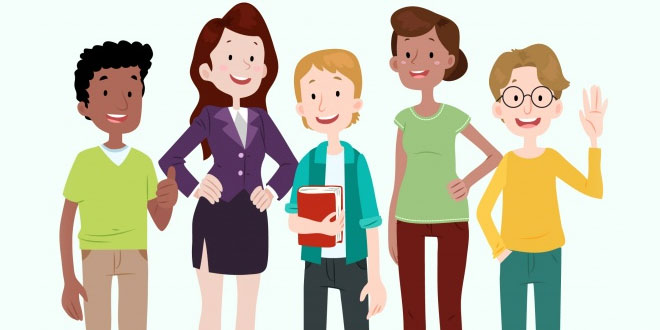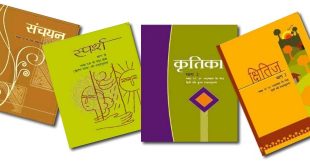Question: What action was taken by International Olympic Association against each of the three Olympians, Carlos, Smith and Norman Peter ?
Answer:
- The International Olympic Association held Carlos and Smith guilty of violating the Olympic spirit by making a political statement.
- The medals given to Carlos and Smith were taken back.
- Back home, they were subjected to a lot of criticism.
- Norman too, suffered for his action and was not included in the Australian team for the next Olympics.
Question: Discuss the role of political parties in the determination of the outcomes of social division.
Answer:
- The outcome depends on how leaders of political parties raise the demands of any community.
- It is easier to accommodate demands that are within the constitutional framework.
- They are not at the cost of another community.
- For example, the demand for ‘only Sinhala’ was at the cost of the interest and identify of the Tamil community in Sri Lanka.
- In Yugoslavia, the leaders of different ethnic communities presented their demands in such a way that these could not be accommodated within a single country.
Question: How did the three athletes, Tommie Smith, Johan Carlos and Peter Norman contribute to the Civil Rights Movements in US?
Answer:
- Tommie Smith and Johan Carlos received their medals in Mexico Olympics, wearing black socks and no shoes to represent black poverty. With this gesture, they tried to draw international attention to racial discrimination in the United States. This was supported by Peter Norman, the silver medalist, by wearing a human rights badge on his shirt. Smith and Carlos were standing with clenched fists upraised and heads bowed while the national anthem was playing.
- Thus, they protested against racial discrimination of blacks. Their action succeeded in gaining international attention for the Civil Rights Movement in US.
- Peter Norman’s support motivated non¬blacks also. The disciplinary action against them gave momentum to the movement.
Question: Social diversities in a country need not be seen as a source of danger. Discuss.
Answer: Political expression of social divisions can be healthy and is very normal in a democracy. This proves as a bridge of understanding between various disadvantaged and marginal social groups, as it allows expressing their grievances and getting the government to attend those aspects at the earliest.
When one social group expresses itself, it challenges the other groups to do the same. Democracy is strengthened by this .
But a positive attitude towards diversity and a willingness to accommodate does not come about easily. People who feel segregated must fight this. This fight should take the democratic path, and the people should voice their demands in a peaceful and constitutional manner and seek a fair position through elections.
Question: Who were African-American?
Answer: Africa-Americans or Blacks American or Blacks are the terms used to refer mainly to the descendants of Africans who curie brought into America as is laves between the 17th century and early 19th century.
Question: What was the reaction of the international association towards the athletics?
Answer: The international Olympic Association held Carlos and Smith guilty of violating the Olympic spirit by making a political statement. Their medals were taken back. Back home they were subjected to a lot of criticism. Norman too suffered for his action and was not included in the Australian team for the next Olympic.
Question: How do these the division affect politics?
Answer: Democracy involves competition among various political parties. If they start competing in terms of some existing social division it can make social division into political divisions and lead to conflict, violence or even disintegration of a country.
For Example: In the case of Northern Ireland that is divided into two major sects of Christianity.
Question: What kind of situations emerge in a condition of cross cuttings in social division?
Answer:
- If social difference cross cut one another, it is difficult of pit one group of people against the other. It means that groups that share a common interest on one issue are likely to be in different sides on a different issue.
- Consider the cases of Northern Ireland and the Netherlands. Both are predominantly Christian but divided between Catholics and Protestants.
- In Northern Ireland, class and religion overlap with each other. If you are Catholic, you are also wore likely to be poor and you may have suffered a history of discrimination.
- In Netherlands, class and religion tend to cut across each other. Catholics and Protestants are about equally likely to be poor or rich. The result is that Catholics and Protestants have had conflicts in Northern Ireland, while they do not do so in the Netherlands.
- So cross-cutting social differences are easier to accommodate.
Question: How could you say that most countries of the world are multi cultural?
Answer:
- Social division of one kind of a another exist in wast countries. It does not matter whether the country is small or big.
- India is a wast country with many communities Belgium is a small country with many communities.
- Even those countries such as Germany and Sweden, that were once highly Homogeneous are undergoing rapid change with influx of people from other parts of the world.
- Migrants bring with them their own culture and tend to form a different social community.
- So, most countries of the world are multicultural.
Question: How do social divisions bed to strengthening of society?
Answer:
- In a democracy, political expression of social divisions is very normal and can be healthy. This allows various disadvantaged and marginal social groups to express their grievances and get the government to attend to these.
- People who feel marginalized, deprived and discriminated have to fight against the injustices. Such a fight often takes the democratic path, voicing their demands in a peaceful and seeking a fair position through elections.
Question: What is a homogeneous society?
Answer: A society that has similar kinds of people, especially where there are no significant ethnic differences.
Question: Who is a migrant?
Answer: Anybody who shifts from one region or country to another region within a country or to another country, usually for work or other economic opportunities.
 Class Notes NCERT Solutions for CBSE Students
Class Notes NCERT Solutions for CBSE Students





